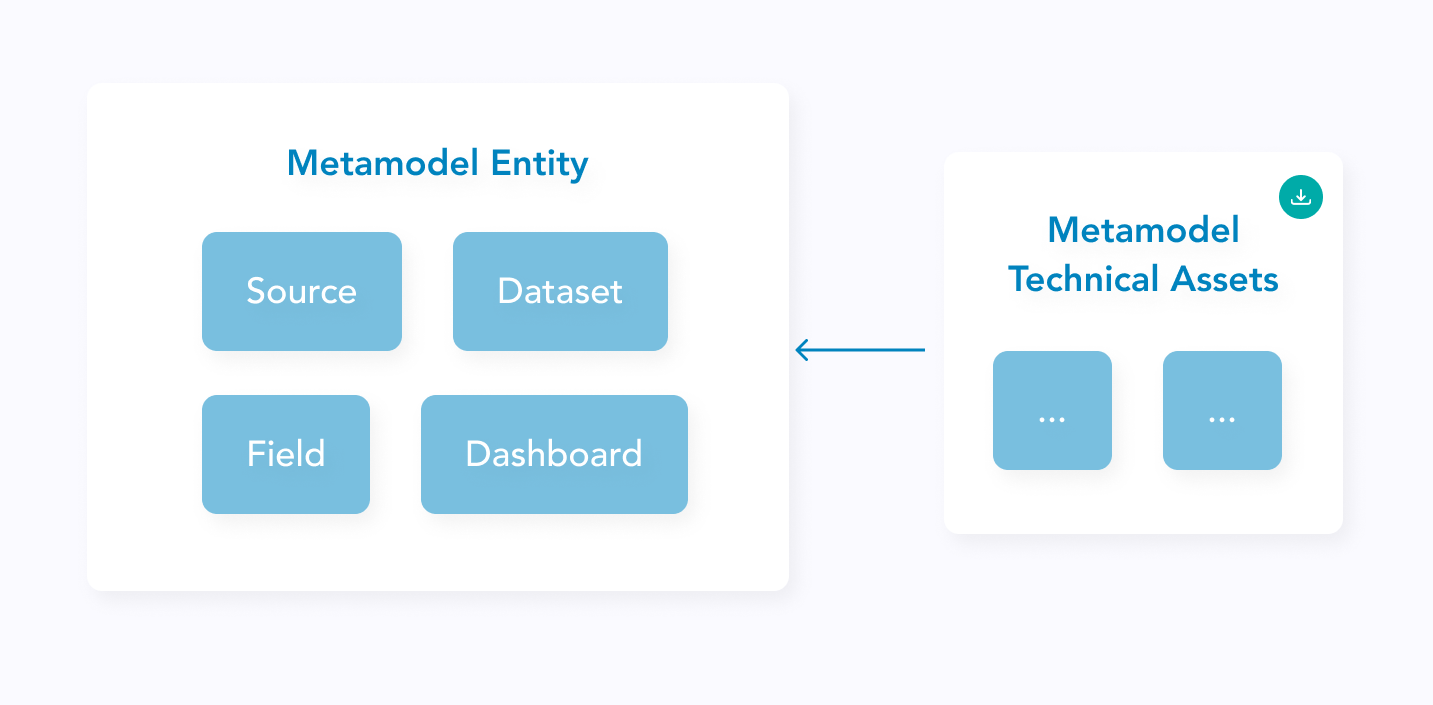A universal and static metamodel cannot be smart
At an enterprise scale, the metadata required to harness in any meaningful way the informational assets can be considerable. And besides, metadata is specific to each organization, sometimes even amongst different populations within an organization. For example, a business analyst won’t necessarily seek the same information as an engineer or a product manager might.
Attempting to create a universal metamodel, therefore, does not seem very smart to us. Indeed, such a metamodel would have to adapt to a plethora of different situations, and will inevitably fall victim to one of the 3 pitfalls below:
- Excessive simplicity which won’t cover all the use cases needed;
- Excessive levels of abstraction with the potential to adapt to a number of contexts at the cost of arduous and time-consuming training – not an ideal situation for an enterprise-wide catalog deployment;
- Levels of abstraction lacking depth and ultimately leading to a multiplicity of concrete concepts bourn out on a combination of notions emanating from a variety of different contexts – many of which will be useless in any specific context, rendering the metamodel needlessly complicated and potentially incomprehensible.
In our view, smart metamodeling should ensure a metamodel that adapts to any context and can be enriched as use cases or maturity levels develop over time.
The organic approach to a metamodel
A metamodel is a field of knowledge and the formal structure of a knowledge model is referred to as an ontology.
An ontology defines a range of object classes, their attributes, and the relationships between them. In a universal model, the ontology is static – the classes, the attributes, and the relations are predefined, with varying levels of abstraction and complexity.
Zeenea chose not to rely on a static ontology but rather on a scalable knowledge graph.
The metamodel is therefore voluntarily simple at the start – there are only a handful of types, representing the different classes of information assets (data sources, datasets, fields, dashboards), each with a few essential attributes (name, description, contacts).
This metamodel is fed automatically by the technical metadata extracted from the datasources which vary depending on the technology in question (the technical metadata of a table in a data warehouse differs from the technical metadata of a file in a datalake).
For Zeenea, this organic metamodeling is the smartest way to handle the ontology issue in a data catalog. Indeed, it offers several advantages:
- The metamodel can adapt to each context, often relying on a pre-existing model, integrating the inhouse nomenclature and terminology without the need for a long and costly learning curve;
- The metamodel does not need to be fully defined before using the data catalog – you will only need to focus on a few classes of objects and the few necessary attributes to cover the initial use cases. You can then load the model as catalog adoption progresses over time;
- User feedback can be integrated progressively, improving catalog adoption, and as a result, ensuring return on investment for the metadata management.
Adding functional attributes to the metamodel in order to facilitate searching
There are considerable advantages to this metamodeling approach, but also one major inconvenience: since the metamodel is completely dynamic, it is difficult for the engine to understand the structure, and therefore difficult for it to help users feed the catalog and use the data (two core components of a Smart Data Catalog).
Part of the solution relates to the metamodel and the ontology attributes. Usually, metamodel attributes are defined by their technical types (date, number, chain of characters, list of values, etc.). With Zeenea, these library types do include these technical types of course.
But they also include functional types – quality levels, confidentiality levels, personal touch, etc. These functional types enable the Zeenea engine to better understand the ontology, refine the algorithms and adapt the representation of the information.
















